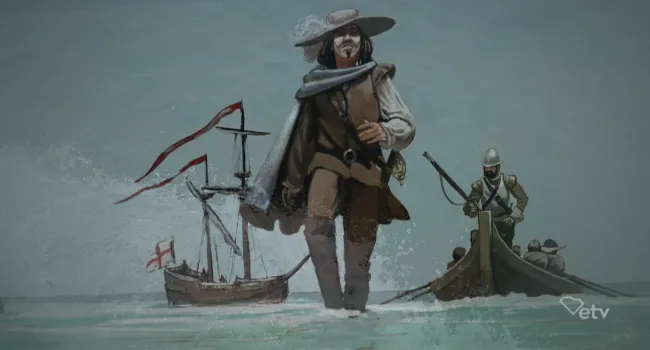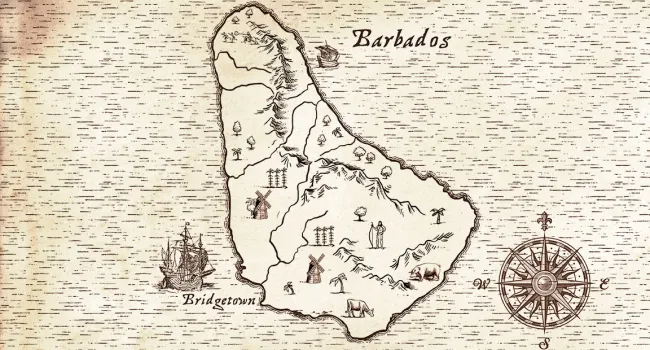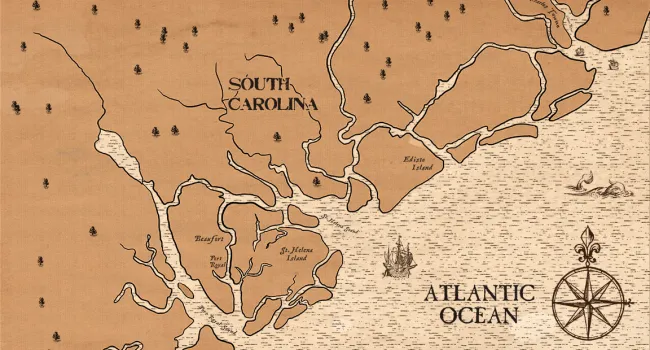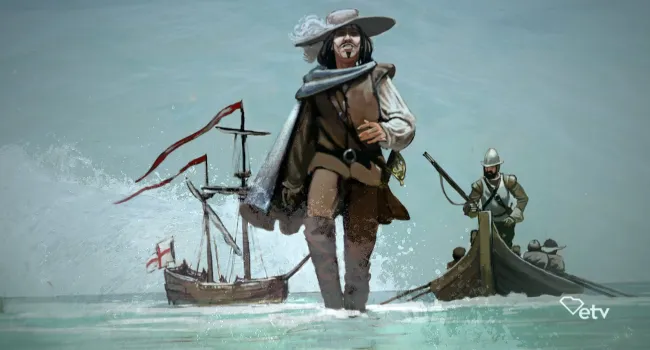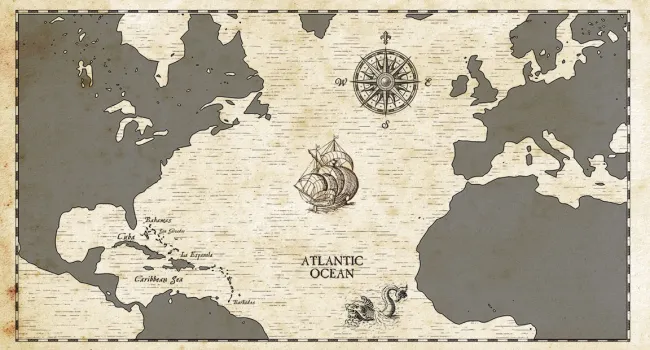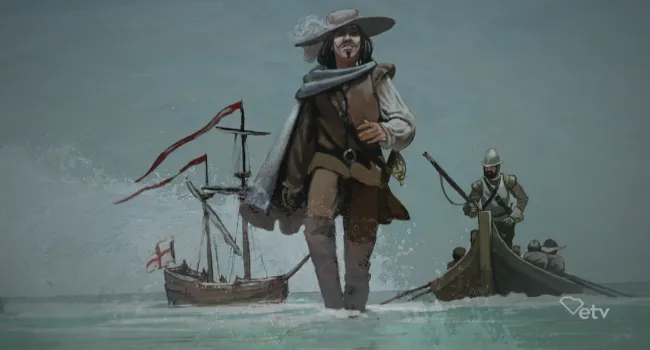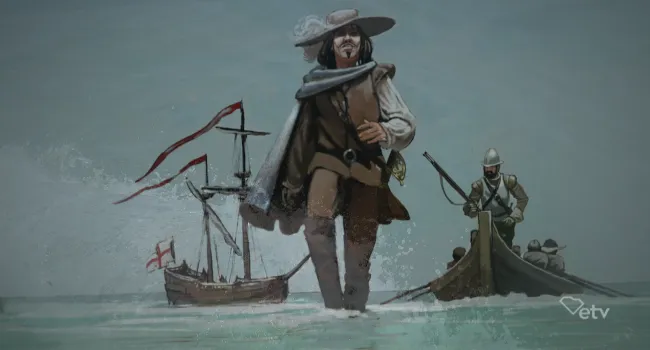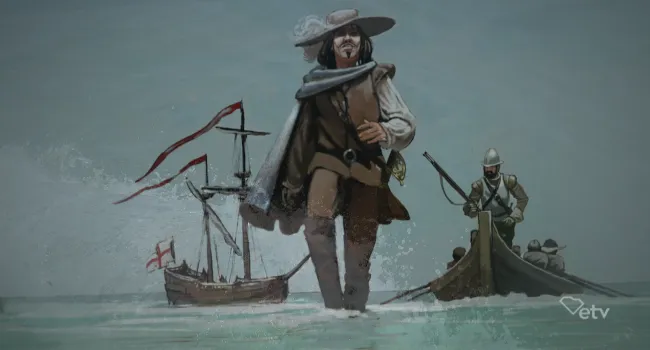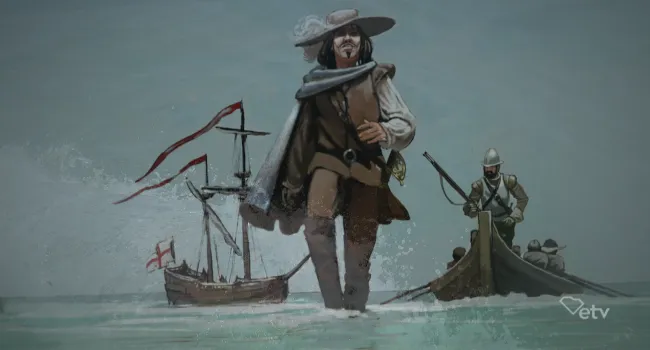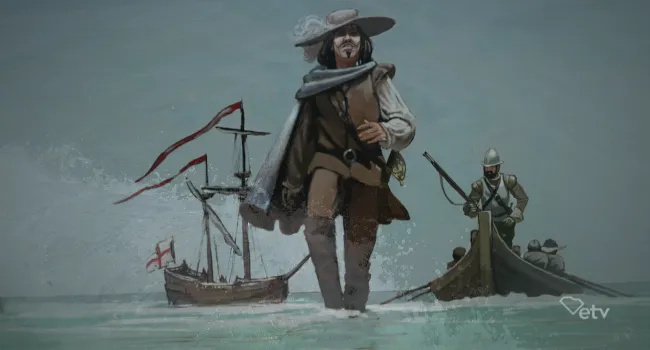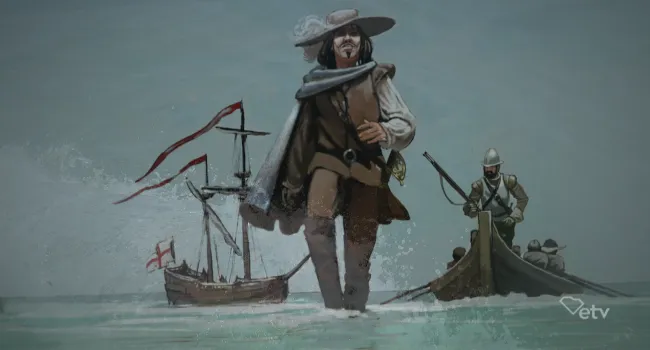In The Beginning
Most students today understand that the Carolinas were colonized by the English who had come to the Charleston area by way of Caribbean trade routes, primarily Barbados. The story of Barbados is as unique as the island itself. Like the United States, Barbados is an amalgam of international cultures. However, for close to 300 years, Barbados remained a commonwealth of the United Kingdom, only gaining its independence from Britain in 1966.
Barbados was inhabited by Amerindian peoples for about three thousand years before the arrival of European settlers. The English settled in Barbados in 1627, seeking wealth, and escape from the turmoil of the English Civil War. These settlers brought slaves and indentured servants with them, and began looking for a crop they could mass produce, export, and profit from.
Standards
- 6.3.CE Explain the impact of increased global exchanges on the development of the Atlantic World.
- This indicator was developed to encourage inquiry into the growing interconnectedness between Europe, Africa, and the Americas which led to increased global exchanges throughout the Atlantic World. The indicator also encourages inquiry into the development of human labor systems, cultural interactions, and the growth of economic markets.
- 6.3.CO Compare European motivations for exploration and settlement.
- This indicator was developed to encourage inquiry into European motivations for exploration and settlement as a result of the closing of the Silk Road. This indicator was also written to foster inquiry into the development of the Atlantic World, and the resulting economic, political, and social transformations in European, American, and African societies.
- 8.1.CE Analyze the factors that contributed to the development of South Carolina’s economic system and the subsequent impacts on different populations within the colony.
- This indicator was designed to encourage inquiry into the geographic and human factors that contributed to the development of South Carolina’s economic system. This indicator was also written to encourage inquiry into South Carolina’s distinct social and economic system as influenced by British Barbados.
- 8.1.P Summarize major events in the development of South Carolina which impacted the economic, political, and social structure of the colony.
- This indicator was designed to encourage inquiry into the development of South Carolina as a result of mercantilist policies, which ranged from the Navigation Acts to trade with Native Americans to the use of enslaved people as labor. This indicator was designed to promote inquiry into agricultural development, using the rice-growing knowledge of the enslaved West Africans.
- 8.1.E Utilize a variety of primary and secondary sources to examine multiple perspectives and influences of the economic, political, and social effects of South Carolina’s settlement and colonization on the development of various forms of government across the colonies.
- HG.1.2.PR Explain the cultural, economic, environmental, and political conditions and connections that contribute to human migration patterns.
Resources
You need to be logged in to listen to view this content. Create an account now; it's quick, easy, and free!
Log In to View